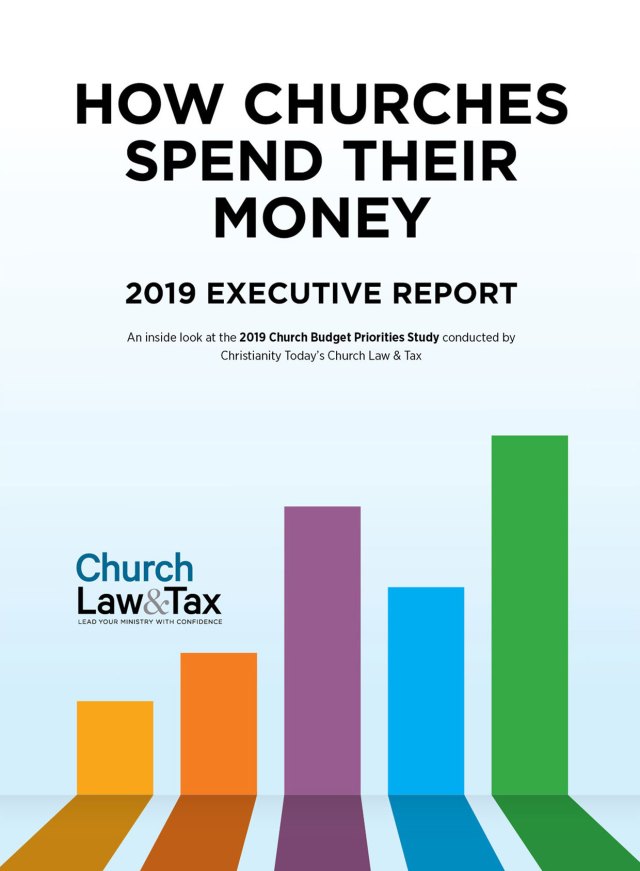In recent years, actual and perceived abuses in the area of executive expenses and “perks” have helped trigger stricter federal tax laws governing churches and other nonprofit organizations and prompted greater scrutiny by the Internal Revenue Service.
Many churches struggle with this area of compliance. For the purposes of this article, we use the term “executive expenses” to refer to expenses incurred by the leaders of a church that could appear to be personal in nature if not properly documented as business expenses. Common examples include, but are not limited to, expenses for travel, meals, hospitality, gifts, supplies, club memberships, and other similar expenditures.
“Accountable plan” rules
Under federal tax law, documentation for travel, meals, hospitality, and similar expenses must include the nature of the business activity conducted, the people involved in the activity, and the places at which the activity was conducted. Payment of such expenses incurred by church leaders must be made pursuant to an “accountable plan.” (An accountable plan is one wherein such expenses are properly substantiated in a timely manner by documentation as required by the Internal Revenue Code and related regulations.) If executive expenses are not properly substantiated in a timely manner, they are required to either be repaid by the individual who incurred them or treated as taxable compensation to that individual.
If the rules are broken
If executive expenses are incurred and not properly substantiated in a timely manner, and if the expenses are not either repaid by the executive or treated as taxable compensation to him/her, the payment of such expenses by the church may constitute “automatic excess benefit transactions” under federal tax law. Excess benefit transactions are prohibited. Federal sanctions for excess benefit transactions generally include a requirement that the person receiving the “benefits” (inadequately documented executive expenses) return the full amount of any such expenses to the church and pay an initial penalty tax of 25 percent of the “excess benefit amount” (the amount of the inadequately documented expenses). If the excess benefit transaction is not corrected in a timely manner, an additional penalty tax of 200 percent can apply to the person who incurred the expenses. Officials who knowingly approve such transactions may be subject to personal penalties as well.
Addressing inadequate documentation
A church faced with inadequately documented executive expenses generally has two options in order to avoid excess benefit transactions:
- The church may treat the inadequately documented expenses as taxable compensation to the individual. This option is only practical, however, if the amounts and frequency of inadequately documented expenses are low. Under federal tax law, total compensation for a church leader must be “reasonable.” Treating inadequately documented executive expenses as taxable compensation effectively results in a compensation increase for the person whose expenses are not adequately documented. Accordingly, such an approach may not be an effective deterrent against incurring personal expenses, since the only effect to the individual is that he or she may be taxed on the additional compensation. Additionally, increases in compensation must generally be approved by appropriate authorities within a church. Further, a church must ensure that total compensation for its leaders (including inadequately documented expenses treated as compensation) meets the reasonableness requirements of the law.
- The church may deduct the inadequately documented expenses from the individual’s pay. This option avoids the effect of creating a de facto pay increase and may be a more effective disincentive, since the person’s actual pay is reduced dollar-for-dollar by the amount of the inadequately documented expenses.
- Obviously, neither option is favorable. The ideal approach is to avoid this scenario.
- Practical suggestions
- Understandably, busy church leaders can find the expense documentation requirements of federal tax law burdensome and frustrating. At the same time, failure to comply with them can result in very severe penalties assessed against the church leader personally, in addition to a requirement that he/she repay the expenses to the church. Accordingly, church leaders should develop practical, workable systems that allow them to provide the necessary documentation in a timely manner.
- If the church leader has an administrative assistant or equivalent, the assistant is often familiar with the leader’s calendar and appointments and can often provide the required documentation. Technology (software/applications) can also aid compliance in this area. For example, some newer applications allow an executive to take a snapshot of a receipt with his/her cell phone and jot a few notes that provide the required documentation in a very efficient manner.
- Whatever the method, church leaders should make the effort to avoid the potentially severe penalties that can apply to inadequately documented executive expenses.





